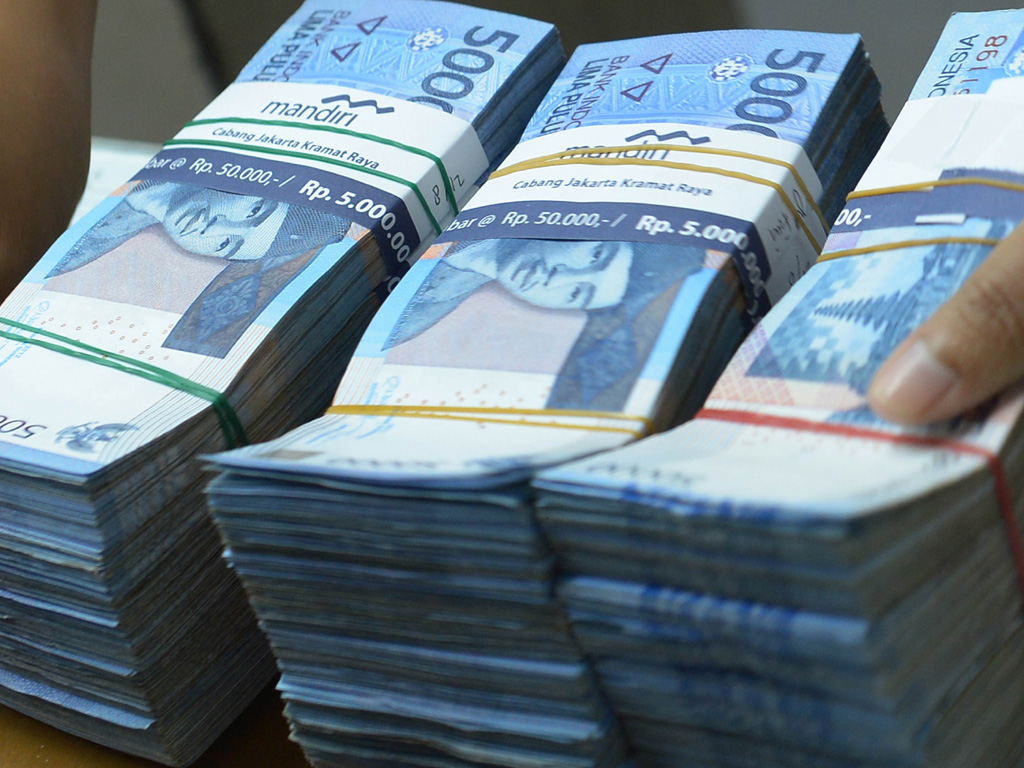 JAKARTA: Lingering concerns over rising global yields, higher oil prices and slowing growth at home drove the Indonesian rupiah to its weakest in nearly 2-1/2 years on Tuesday, which led to the country's stocks and bonds also being sold off.
JAKARTA: Lingering concerns over rising global yields, higher oil prices and slowing growth at home drove the Indonesian rupiah to its weakest in nearly 2-1/2 years on Tuesday, which led to the country's stocks and bonds also being sold off.
The rupiah hit its weakest level since December 2015 at 14,050 per dollar, extending a three-month decline that has seen it shed more than 5 percent of its value against the dollar even while authorities intervened to support it.
The latest fall comes a day after data showed the Indonesian economy grew at a weaker-than-expected pace of 5.06 percent in the first quarter, adding another headwind to markets already worried about capital outflows from the high-yielding rupiah bond markets.
As the rupiah fell, the stock market on Tuesday declined 1.9 percent to its weakest in a year, while yields in the government bond market, 38 percent of which is owned by foreign investors, rose across the board. The benchmark 10-year yield was up at 7.203 percent.
The finance ministry announced its decision not to sell any bonds at an auction on Tuesday, saying investors asked for yields that were too high because of market volatility.
"The market is responding to rising risks in Indonesia's economy at a time when oil prices are climbing," said Fakhrul Fulvian, chief economist at Trimegah Securities.
Indonesian markets have been hit harder than others in Asia in the past three months as US yields rose and the dollar rallied, although markets in India, the Philippines, Thailand and Malaysia have also seen foreign investment outflows.
Dhian Karyantono, fixed income analyst at Mirae Asset Sekuritas Indonesia, said bond investors sold their Indonesian assets due to the rupiah's slump as well as a rise in the country's credit default swaps - a contract for investors to eliminate possible loss from a sovereign's default.
Indonesia's 5-year contract for CDS rose to 120.93 basis points on Tuesday, the highest since July 2017, due to rising oil prices, analysts said.
Bank Indonesia had been spending "quite a sizeable amount" of foreign exchange reserves to defend the rupiah in the currency and bond markets, its governor has said.
On Tuesday, the central bank said its reserves were down $7.1 billion during February-April, mostly for currency intervention.
BI increased its forex swap volumes in an auction on Tuesday, a senior official said, in a sign that the heavy intervention was still going on in May.
Deputy Governor Mirza Adityaswara said BI would weigh up whether or not to raise its key interest rate at its next meeting on May 16-17 by assessing indicators including global capital flows and US interest rates.
Mandiri Sekuritas chief executive Silvano Rumantir said he expects markets to remain volatile until June as investors bet on the pace and timing of Federal Reserve policy tightening.
The securities firm has revised down its forecast for the Jakarta benchmark stock index at the end of this year to 6,325 from 6,725, Rumantir told Reuters. That would be a correction of 0.5 percent from the 2017 closing.

















Comments
Comments are closed.